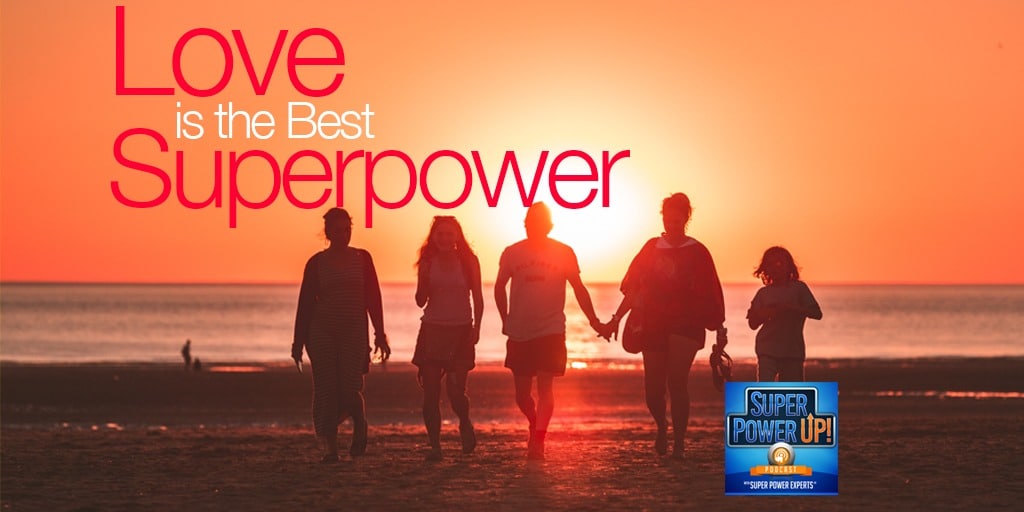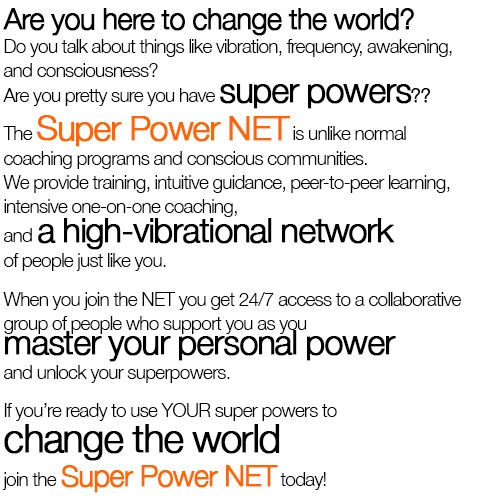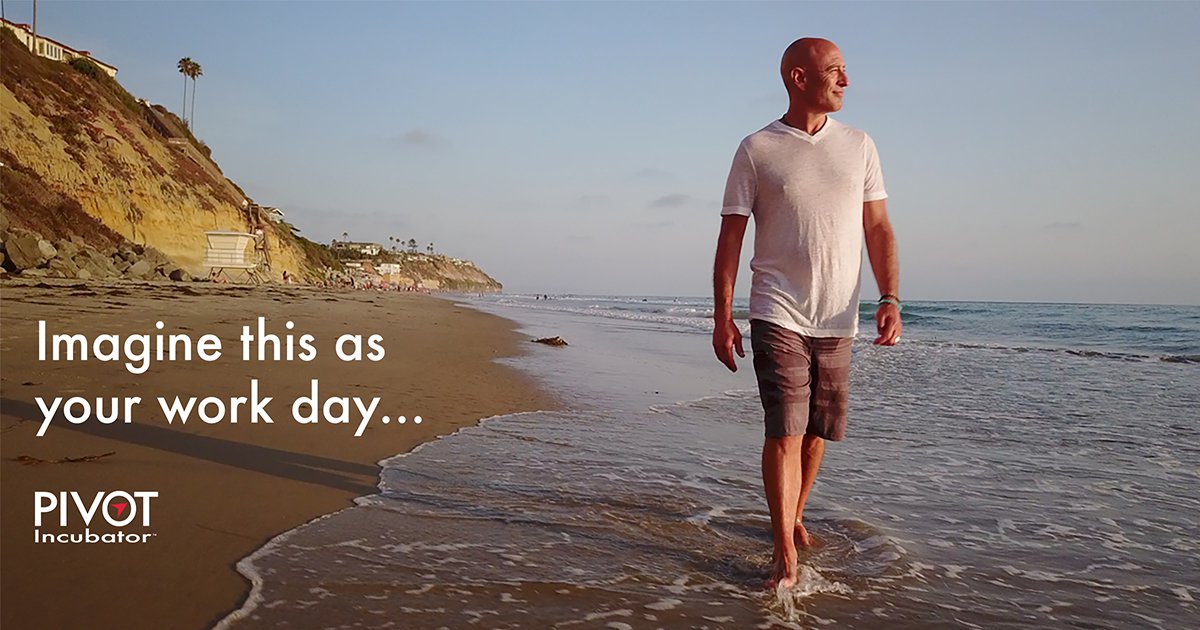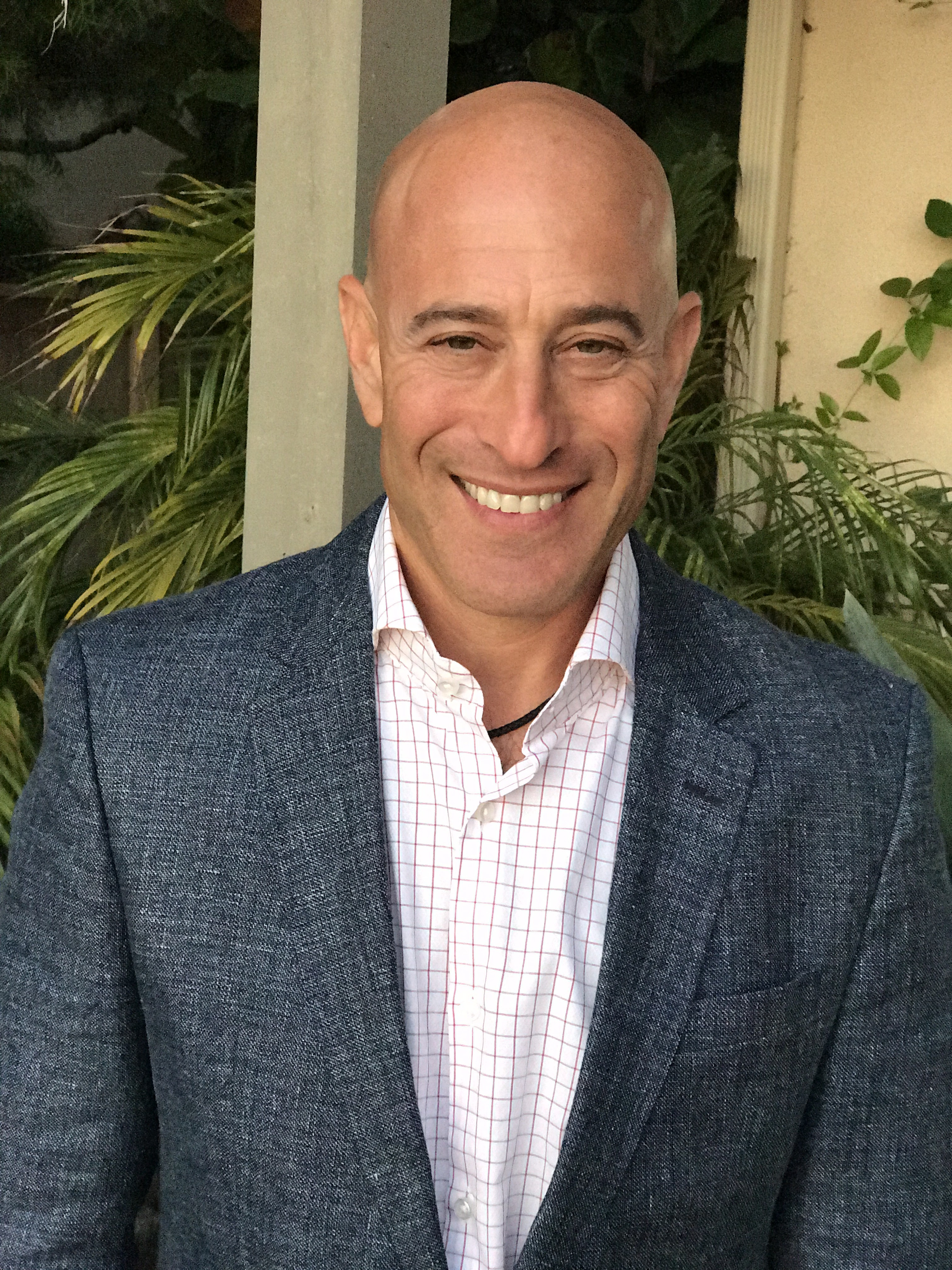 In this episode, we chat with best-selling author and CEO, Adam Markel. Adam has been a lawyer for 18 years and shares how being the heart and defender of your own mindset can be the catalyst for massive personal and professional growth.
In this episode, we chat with best-selling author and CEO, Adam Markel. Adam has been a lawyer for 18 years and shares how being the heart and defender of your own mindset can be the catalyst for massive personal and professional growth.
Adam Markel is a recognized expert in the integration of business and personal development. He ran the largest personal development company in North America. His latest book, Pivot: The Art and Science of Reinventing Your Career and Life, he shares an inspirational program for reinventing yourself. In this episode, we dive into how a husband, father of four kids, and attorney of 18 years created that reinvention by living in his full potential.
Hello everyone. This is Tonya Dawn Recla your Super Power Expert and I am just…I have this big grin on my face. I love this man. I can’t say that we’ve known each other in like physical human form that long this lifetime but just really, really feel connected to him. He’s just a lovely, lovely person and I’m so excited that he’s come to share just his wisdom with us. I mean he was a lawyer for 18 years and then he went on to run the largest personal development company in North America. Adam Markel is just a…I don’t know, I mean just when you need him you can feel him. He’s, what we would say is, he’s done the work. You know, he walks his talk and I can’t think of any greater accolade to offer somebody who’s an author, a husband, a father of four kids. But he’s remarkable in the transformation and change space. And so I’m really, really excited to talk with him about pivoting and change and transformation. And so please, please join me in welcoming him to the show. Welcome, Adam. Thank you so much for joining us.
Oh, Tonya, thank you so much for having me. What a blessing and a pleasure, really.
Well, thank you. Thank you. I adore you and some really just…any time I get to spend with you I’m excited about. So this works out for me, totally self-serving.
I’m with you there.
Very cool. Well it’s true to form. We’ll throw you in and just say what are your Super Powers?
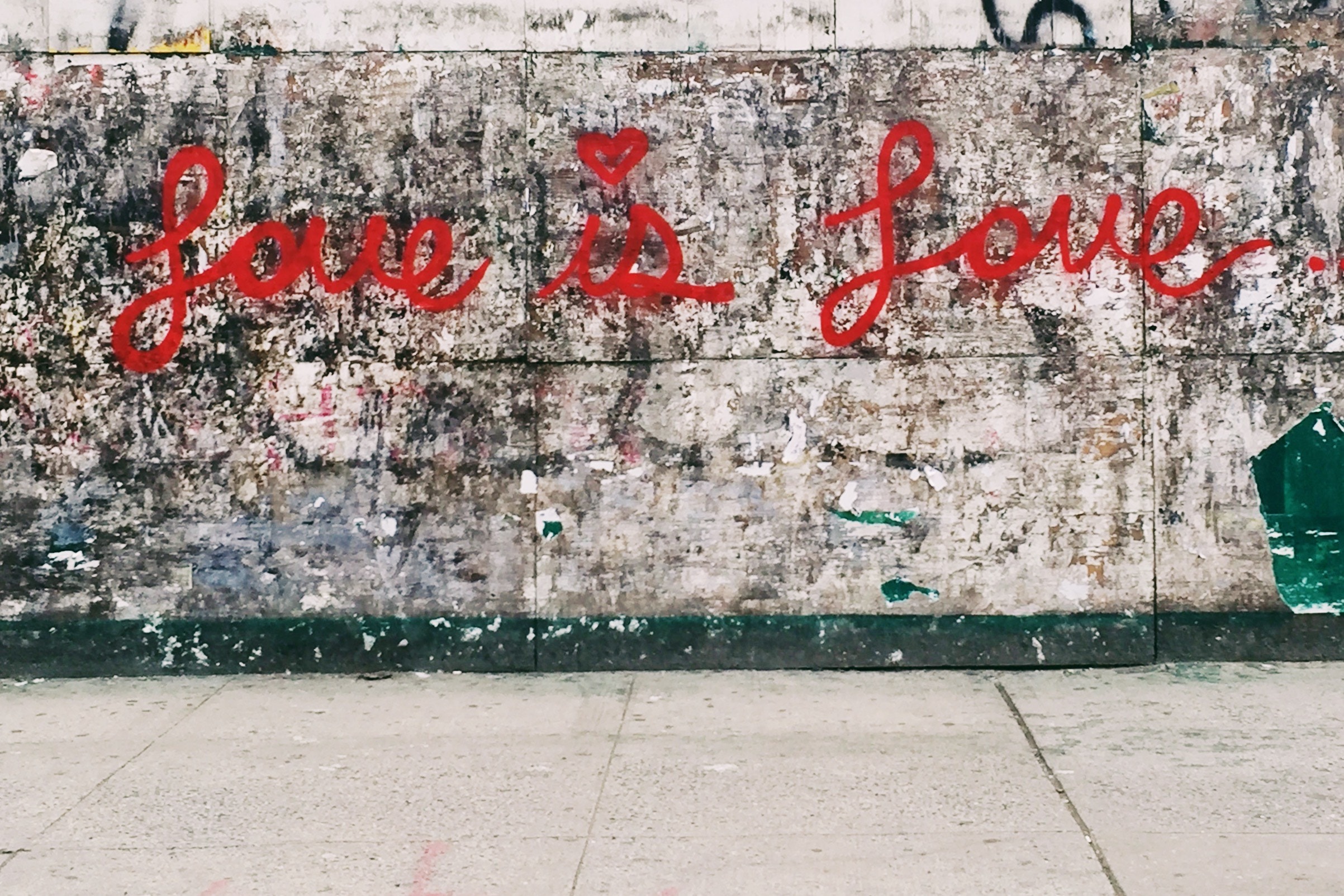
I just geniunely love. I love people.
Photo by Jon Tyson on Unsplash
What are my Super Powers? That’s a really great question. I’m going to give it some thought for just a second. Yeah. I’m not going to think about it at all, I’m actually just going to feel into it. And my Super Power has been for, I think since I’m a little, little kid, I have a big heart. I just genuinely love. I love people. I’m not always patient. I work on patience and I judge and I work on not judging and all the rest of it. But I love people genuinely and have a big heart. That’s what I’ve always been told by folks. And I’ve started to believe it so. That’s my Super Power.
I love that. What a great Super Power. And it comes in to everything you do. Like how did that, well, that was all just supposition. I can see that it comes into play now with what you do. How did you manage that as an attorney?
That’s a good question. That’s got to be a great question. Not easily. Not easily because and I think that’s part of the reason why I needed to pivot out of that practice of law. It’s interesting enough because I know a lot of people who are lawyers. My brother is a lawyer. My sister-in-law is a lawyer. And for me anyway, at least the way I was practicing law, it was deadening my heart. And that didn’t sit well with me. After a number of years, it just kind of was creating misery and pain and I could see things changing in my outlook and my physical body was changing and my energetic state was changing because I didn’t really love what law was, how it was showing up for me in my own life. I mean I made a lot of money. And I was successful in the business sense. But on a personal level, I was just I was in conflict. And so, you just pointed out my area of conflict because litigation and very much the practice law can be adversarial even in the simplest of things like a real estate closing and you know whatnot. And while there were parts of the practice of law that did appeal to me for example I still, part of my DNA, part of my Super Powers as well, is that I am a good defender of people. I stand up for people. I was bullied as a kid, don’t have very much tolerance for bullies. And so you standing up for the little guy and the underdog and all that kind of thing is natural to me. And I had some ability to do that in the practice law. Now I empower people in a different way. But, you know, the long and short of it was it created conflict between my heart and what I was feeling on the inside, and what I was doing, and doing really in all candor, just for money.
Yeah it’s so interesting to me like you know maybe that’s a space, you and I really connect in is the, you know, I had a very similar experience in the counterintelligence arena and, you know, somebody who was like he was serving a purpose, who was doing good, you know. There is the defense side. There’s a national security angle and at the end of the day like it just felt deadening. I really like that you used that word. It wasn’t expansive. It was so constrictive with regard to, you know, who I felt myself becoming. And that was challenging. I don’t know about you, but for me, it was, is a real like gut check moment because, you know, when you have positions like that, that a lot of people covet, in all honesty because it’s, you know, a lot of those positions really represent achievement, success and we kind of hold them up in a higher regard, to walk away from it, for a lot of folks that’s simply unheard of. You know, I remember I was 30 days away from tenure with the government, when I left. And I remember, I mean, people were just, you just don’t do that, you know, first of all nobody ever leaves like this fire arena at all, you know, you just never leave it. But if you do it’s like, you know, there’s usually its retirement. And it was just unheard of. But, you know, did you have a similar experience where it was like you were just done or you know how did that unfold for you?

I witnessed the birth of four children.
Photo by Alex Hockett on Unsplash
Yeah I had the same thing people said to me, “You’re out of your mind. You’re like giving up your meal ticket.” You’re giving up your ticket, you know, your ticket to a lot of things because as you said it’s coveted and it takes time and money to get there, as well, and, you know, all that. I just didn’t…I’ll remember one moment for the rest of my life that was the most painful sort of moment of transition which I would maybe I can say this is sort of be…be…I don’t know what the right word is but I’ll say it and I have some basis for the…for saying this but I can’t…I don’t have firsthand knowledge. Let’s put it this way. I witnessed the birth of four children so, I didn’t give birth to four children but I witnessed right up front, off of from all angles and all that.
Now I understand all of the caveating. You’re like, ok, how do I say this?
Well, we can spare a woman, you know. For a man to say, “You know, I understand childbirth.” is like, yeah you know that’s all right. That’s fine.
That’s probably not going to go over well.
That’s not going to go well. I will say that the moment I wanted to share it with you was moment of birth for me. It was the birth thing and it was like the births I witnessed incredibly painful. So I’m in my office. It was the…we had…I had done a pivot kind of a mini pivot out of Manhattan. I kept my office in Manhattan but I didn’t go into Manhattan very much after a certain couple of years in transitioning to work closer to home so I opened an office in New Jersey where I was also admitted to practice and then that office there and when my pivot was sort of in its latter stages so I had already started to do something else. I definitely want people to understand pivoting is reinvention. We’re reinventing in some area whether it is career wise or it is business pivot or it is relationship or health pivot. You know, that term I use is to define how do we change, what’s the process for change, because it is much more a process than it is a plan. So I was going through this process of changing from being a lawyer to doing something that called more to my heart, my soul, and really was more in alignment with my Super Powers it started with. And so I was in the latter stages of making that pivot, that change into practicing out of practicing law into being a teacher but a different kind of a teacher. I was a junior high school teacher years and years earlier. But this was teaching adults and young adults and older adults how to lift themselves out of their circumstance, how to change their mindset, how to reprogram their brains, how to reprogram what they were doing, the habits they had and things like that, to create more success in their life with money, in terms of their businesses, in terms of just being more in alignment with what they truly wanted to do or what their gifts were. You know, that kind of thing so that was me traveling around the world and standing on stages and teaching and training and facilitating processes and exercise. I got to see the best of people. I got to see people breaking through their fears and their obstacles whereas when I was a lawyer I was seeing oftentimes the worst in people fighting over 25 dollars or 25 million dollars or whatever. But, you know, lots of just stuff that was adversarial. So here I am feeling really great about this reinvention process for myself and I’m in my office and downstairs is a shredded truck company that shreds documents. And so I had all these documents that were seven or eight years old or older that I was now going to shred because I didn’t have any legal requirement to keep the documents any longer. And they were only going to be kept because, you know, if I’m keeping my law practice open, you know, you just don’t kind of throw anything away it seems. But so it was down there for two days. That’s how much was being shredded. And I was in my office, the furniture had been removed. You know, I was on the last couple of weeks of my lease. Everything was kind of gone. It was just a few file cabinets left and I’m in the middle of this space and I kind of dropped down on the ground and I’m on my back and I’m rolling almost writhing in pain like a baby and I’m, you know, bawling and hysterical crying and I’ve got this just pain this enormous pain in my stomach. Again like what I would imagine some, you know, element of the pain of giving birth is like. And I just, I was the, what was going on in my mind was really just the thought that I had spent, you know, that what was being shredded downstairs, represented sort of 15, 16 years of my life. And that realization for whatever, you know, whatever it was, just was so poignant, so visceral, as a friend of mine likes to say, so painful that I couldn’t contain it. Like it just embodied me for I don’t know 10 minutes and I’ll never forget that. That was just one of those, you know, those moments where it’s like I went through the threshold because on the other side of that threshold was the new, you know, the newer version, the updated and upgraded version of myself and that was not easy.
Wow! That is such a powerful story and it’s so important I think in, you know, the consciousness awareness kind of transformational community’s personal development. All of them, you know, I see a lot of people wanting to brush over the tumultuousness if you will, the, just the gut-wrenching kind of feeling of going through some of these transformations and I think we do people a disservice to pretend that it’s all easy. It’s the most natural thing in the world I think to go through but that doesn’t mean that it’s always in that moment easy and for you to represent it in that way and to have it experienced in that way, you know, I appreciate calling that out and saying, you know, it’s…on the other side, of course, it’s easy to talk about like it’s, you know, oh, just come on over….come on this side, oh, it’s great and I don’t know, you…may be similar to the impact here now to your childbirth. Maybe it is similar to childbirth ever since that, you know, once you’re holding the baby in your arms, you are like, “OK, that wasn’t that bad.” You know, but you remember the moment. I was like, “No, that was pretty darn tough.” And so I appreciate that you add all those elements into it and talk about it from that perspective. I think it’s important to do it and not in a way to warn people off, you know, or to caution them but just to kind of paint a more realistic picture that, of course, you’re going to do it and that doesn’t mean that it’s always going to be easy right in that moment but you have to continue to choose to move through it.

What if pain is just another thing in the universe.
Photo by Austin Schmid on Unsplash
It’s a threshold, like you say. And just for anybody that, you know, has either has kids or was once a child. You don’t remember your own birth, fortunately. But the good news is that the pain of that birthing process is, you know, a part of, it’s a part of it, that’s…it’s natural. I know I hadn’t met anyone yet. I haven’t met a woman yet that said her birth or her childbirth was anything other than, oh, I should say, it didn’t…there wasn’t any pain associated with it. So and then if you haven’t had any pain during childbirth, you know, raising up kids you’re going to have plenty of painful moments, either when they’re teenagers or at some other point in time. You know, parenting has, you know, is painful and not in the sense of don’t do it and not in the sense of it’s wrong or bad. It’s just a part of the process. And so yeah, I don’t typically talk about that particular moment but I think it’s really, I think it is realistic in telling that in the course of getting something more out of your life or something that you truly want from living, you have to be willing to trade pain for it. And as Michael Singer says in The Untethered Soul which I absolutely adore that book, he says, you know, “Well we spend our lives, so much of our lives is spent trying to avoid pain that’s ninety nine percent of our effort and our energy goes in on some, you know, some points to just avoiding the experience of pain” And what if pain is just another thing in the universe. What if it’s nothing more or less than just the thing in the universe? Like, I don’t know, like a tape dispenser, like your shoes, like a plant, like anything. And if you were able to experience pain as a thing in the universe without resisting it or fearing it so greatly that you’re, that you guide your actions and your thoughts and you do things just to avoid that feeling of pain, you know, how liberating is that. And he actually says, and I agree with this, that pain is the price you pay for liberation in many ways. And so for me to bring it home tied up, that loop up a little that was a very painful, physically painful moment for me in time. And it was the price or part of the price for liberating my soul.
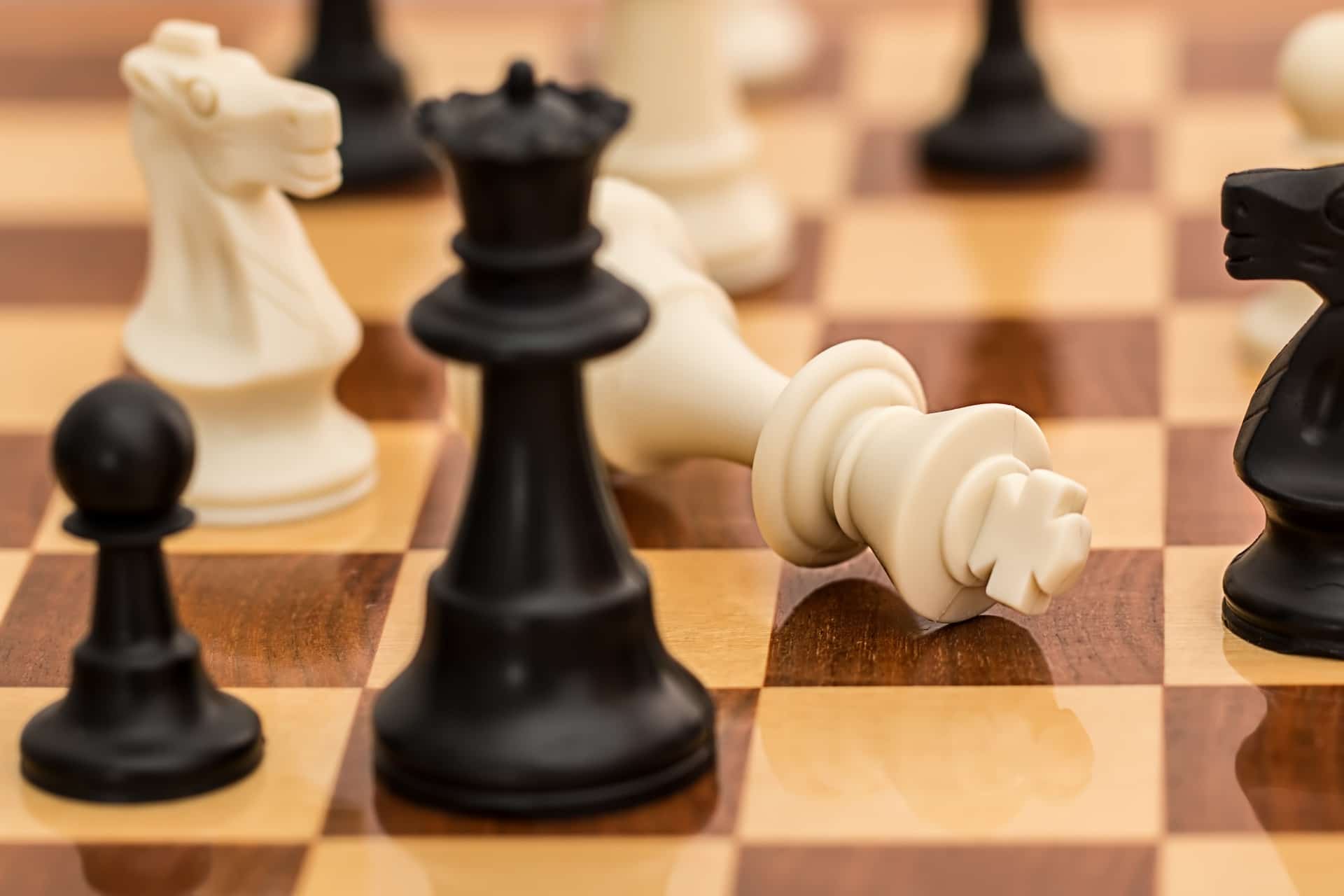
It felt like there were two warring factions inside of me.
I love it, you know, you’re reminding me, I had a similar experience and I hadn’t reflected on it in quite sometime but my experience with it was similar in the sense that I was…I fell to the floor and I remember at that point it felt like there were two warring factions inside of me. And I remember in that moment very clearly, not feeling like I had the strength to choose to go through it and rather just begged it to stop and I said I don’t care who wins, I don’t even know what you are. I just want this over. And what was interesting is what transpired after that was a series of, you know, few years and it came back not with as much intensity but when it came back the next time, I was very clear what was going on at least, metaphorically for me, was kind of the age-old like ego, spirit kind of battle. And in that moment I very consciously chose and said, “Oh, no, like this is it.” like we’re moving through this now, like we’re not, you know, I don’t care how painful it is. I’m going through it this time. I’m not going to avoid it or walk around it. And so I had both of those experiences. But it’s funny because I hadn’t reflected on that until you shared your story, so thank you for that. I think it gives a whole added layer to what do you want? You know, when you’re in the midst of that, what would you choose? And in a lot of the teachings and the stuff that we talk about at Super Power Experts is in the moment you get to choose and every single moment, the choice that you make determines what comes next. And so my question to you based on that is like how do you with regard to the pivot conversation, and I do want to get to the book, but when you’re working with people, how do you kind of gear them up for those transitional moments and what kind of tips or tricks do you have to offer to our listeners on how do you manage those?
Well one of the things we teach and that’s in the book, as well, is a formula for resilience because a part of what we’re talking about is the ability to be resilient, to be able to bounce back from things, from setbacks, from disappointments, what have you. And so the resilience formula I think is key. Resilience is, you know, the ability to recover quickly, is what, you know, pro athletes, the best athletes, Olympic athletes, they are the best at doing that. In fact this, the Harvard Business Review article compared those types of athletes, the top performers to executives in business and entrepreneurs and found that that’s really what is one of the key ingredients to creating successful long sustainable results in business is the ability to do what athletes do, which is to recover quickly, to bounce back from setback very quickly, emotionally, mentally, physically and even spiritually, that capacity to recover quickly. And so, you know, to me, there’s the three parts that I’ll just give you those three parts really quickly. One is to take a look at your situation and frame it as we do, you know, that’s quote unquote, the story that we tell and we’re great storytellers. We’re constantly, you know, creating meaning around things and then telling a story about it so the meaning that you give something is key and the story that, you know, how you frame what you’re giving meaning to is also the sort of foundation for everything that’s going to get built on that. So if you know turn around, you create a story about, you know, how you’ve been wrong, how you’ve been betrayed, how something you know was devastating and you made that awful mistake, you screwed up, somebody cheated you whatever. I mean all the different stories, you know, that we tell based on the meaning that we give to things. You know, if you tell that kind of a story you’re going down a path and that path is not going to help you to recover more quickly. It’s not going to help you to be more resilient. In fact, it will only make the situation worse. What I found and again in this study, they talk about this as well, is that when we tell ourselves a more empowering story, when we give something a meaning that is positive, a meaning that is powerful. So to take a look at a situation and frame it in a way that says you know what, I didn’t lose my money on that particular, you know, business venture. Does that mean that I’m not equipped to be in business? Does that mean I’m an idiot? Does that mean, you know, I should have gone to business school? Does that mean I can never run a successful business because I’ve failed in business or in some, you know, business relationship? I mean clearly the answer is no. You don’t have to go far to find, you know, thousands of examples and hundreds certainly really famous successful examples of people that failed in business or failed in something they were trying and then succeeded, you know, the tenth time after that, the hundredth time after that or the next, the very next time. So creating a new frame for the situation and one of the things that is really helpful to me in creating that new frame is to ask this question that my wife Randi has reminded me of for many years now and that is what is the creative opportunity? It’s a very powerful question and I hope, you know, folks hearing that will write it down. What is the creative opportunity in this situation that I’m in? Because that immediately will bring you, bring your mind and your meaning-making, the meaning-making machinery of your mind to the place of looking for opportunity, looking for the creative juice in what’s happened. So that’s part one is, you know, asking that question, “What’s the creative opportunity?” so that you can reframe whatever it is or frame whatever it is in a very empowering way. The second thing is what is the little wisdom, the, you know, the nugget, the distinction as my grandmother used to call it, the little gem? What’s that small thing that you can take away or learn from the situation you were in that’s so powerful? And sometimes it’s not one thing. It’s sometimes many lessons that you will learn including, you know, this is how I, this is how you don’t run a business, this is how not to invest. And you know, if you want to keep your money, if you want to grow your money, this is exactly how you shouldn’t do it. You know, whatever it is, those distinctions; those learnings you want to mind for that wisdom and to mind for wisdom means you have to be present. You have to be willing to suspend your…the voice, the little voice, the roommate inside of your head that wants to condemn you, condemn other people, criticize everything. You don’t look for all the things that are wrong and you instead have that same roommate look for not so much what’s right but what did I learn. And where are those, you know, wisdom nuggets? And you see, it’s a process of mining which takes some time. It takes some patience and takes really just being present for a period of time so that you can be guided to what those things are. So that’s part 2, mining for the wisdom and the third part is that you actually have to take care of yourself. And this is really essential. It was essential when they studied these top athletes and it’s just as essential with people in business or you know people that are recovering from anything, could be a breakup of a relationship. You know, they’re pivoting in that area could be a health issue that they’re recovering, from cancer or some other diagnosis they’ve been given. You’ve got to take care of yourself mentally, emotionally, spiritually, physically. You have to do that. So what does it look like? It means starting your day in a way that is healthy. It could be to say five minutes in the morning for your own practice, your own stillness practice or meditation practice. It could be, you know, making something really healthy to eat in the morning instead of grabbing coffee and a, you know and a fried egg or something, you know, drinking green drink. It could be taking 20 minutes to walk during the day while you’re at work, or taking other time during the day for yourself to simply be quiet or do something that you love, something you enjoy. Any of those things where you have it become more of a conscious practice which ultimately when you create these conscious practices they become habits because we’re creatures of habit and then ultimately when these habits become things that you are creating consciously and that you are doing unconsciously well, so you’re unconsciously competent at taking care of yourself, they become master habits which we use to call master habits rituals. We just give it a word that for us mean something sacred, not religious, but something sacred and that’s the three steps to creating more resilience. And when you’re able to create more resilience, there’s nothing that I’m aware of in life that life can throw at us that we can’t bounce back from and be stronger in the bouncing back growing, you know, reaching and going higher in our consciousness and higher in every aspect of our own actualization as a result of that resiliency.
I love that and I love that it’s a combination of things you do in the moment. So, you know, for Randi’s reminders for you of the creative aspect of that that puts a person in the creator position which again is a responsibility kind of empowerment piece. But then also there is work to be done prior to those moments and the work done prior to those moments is what leads to your resiliency in the moment. So you know, that balance of the quick tips and tricks in the moment as well as, you know, taking ownership of what you’re creating moving forward and how you’re preparing yourself for those moments, you know. A big top of conversation within our Super Power network has been the fact that I think people were erroneously operating under the assumption that the chaos and the tumultuousness and the trying times were going to magically end, you know, at some point in the enlightenment kind of journey. And I don’t know that that’s the game, you know, I’m not really sure that that’s a worthwhile goal. I think instead developing that resiliency and having the ability to navigate chaos and to get clarity and to kind of have solidity in that actualization piece as you move through whatever comes to you is a much more empowered place to play from. And it allows for events to unfold in ways that continue to polish us. And so those three steps I think when implemented really would be an amazing arsenal for folks with regard to the transformation and pivot conversations. So thank you for sharing those.

Change is the cosmic law for manifestation in the universe.
Photo by Joshua Sortino on Unsplash
It’s a lot, you know. Thank you. It’s a life skill. It’s an essential life skill because the only thing we can count on, maybe not the only thing but one thing we can certainly count on is that change is a constant. It will be. It’s with us. Disruption is everywhere. And that’s not a bad thing. Change is the cosmic law for manifestation in the universe so we don’t get manifestation, we don’t have something new, we don’t have evolution. We don’t even have life if things don’t change. Things that are stagnant are dead. And so we can’t remain stagnant. We can’t commit ourselves long term to the status quo and not see ourselves sort of just disintegrating on some level. And I think that’s probably what was going on for you in the work that you were doing and the work I was doing formerly as a lawyer. I just was seeing myself disintegrating. I mean I wouldn’t have articulated it that way. I had no awareness of it really. I just felt like shit, right, so I couldn’t explain it. And the thing is that it’s not a one and done. It’s exactly what you said. We prepare like life is a game of preparation. And so it’s not, you know, if you’re assuming, if you have the wisdom to assume, that things are going to change regardless you know, whether you are creating those changes or whether those changes are happening around you and you’re just trying to hold center, changes are going to happen. And resiliency, what we’re talking about, is an essential way to not just survive the storm if you want to call it that but to utilize it, to utilize, to harness that energy, to harness the wind that’s blowing so hard. I mean look I went from being a lawyer, 18 years in the practice to running an operation, a very large personal development training operation and doing you know, work that really called to my heart and soul. And then, you know, less than a year ago I started to have some conflicts with my partners in that business. And ultimately six months ago we decided to part ways which was also change, not change I planned four, five years ago when I decided, you know, this is the work I want to take on and all that sort of things. So change happens and it’s painful no matter where it meets you. I think change is always going to be some loss when you change something because it won’t be the same. Nothing will remain the same. So just a question of are you hanging on to something that is old, are you hanging on to something that in essence energetically is dead or are you living now and creating your life in this moment? And obviously in all, you know, in all the future moments that we’re yet to know what they are, then that’s where all of our life exists, exists in the unknown, exists in the dark, in the uncertain. And this is what scares the crap out of every human I’ve ever met. Haven’t met anybody yet that is immune to this and yet that’s where courage shows up that we’re still blind to deal with our fear and deal with our insecurity and I deal with my attachment to certainty, my attachment to the known, every moment of every day. And that’s my, you know, if I was to say, what is my spiritual practice, you know, that’s the essence.
Beautiful, beautiful. I love all, everything that you’re talking about. Folks, if you want to know more, you can catch Adam’s book, Pivot: The Art and Science of Reinventing Your Career and Life, which we’ll make sure to include a link here. Adam, where else can we send folks who want to get a better feel for what you’re doing and get in touch with you?
Oh wonderful. You know, I would love to give people an opportunity to see where they’re at, in the sense of, you know, they, in a pivot, where they’re thinking they’re going to be pivoting, changing something, you know, in their life anytime soon. And so we’ve had six essential questions that help people to, you know, get a sense to be more present to the process and where they’re at maybe in the process or what that looks like for them and they didn’t know that. AdamMarkel.com to get that assessment. So it…and my last name is spelled M A R K E L so AdamMarkel.com and there is access to our podcast and some really great resources and tools that are on that site including blog and all kinds of things like that. And the six questions that we call a kick start, so that’s kick start guide to people who want to either become more resilient, learn how it is that they can be ready for change when it’s going to show up on their doorstep or maybe they’re like you and I and they’re just not 100 percent satisfied with some area of their life and they want to make a change but they don’t know where to begin and they sort of question whether they’ve got a kind of, you know, burn the ships or give up their job or give up some other area in their life and put themselves in real, you know, in great risk to creating something new. And clearly you don’t have to do that. But until you know the process better as to how you make small changes that over time lead to transformation, unless you know that where you’ve experienced it, you know, it’s kind of hard to, it’s kind of hard to do it without that fear at your, you know, sitting in the driver’s seat, right with you. So, yeah, the kick start guide is great and they can get it right on the website.
Awesome. Thank you so much and I just adore you. I love the work you’re doing in the world. I honor you for being transparent about your story and the transitions you’ve made and what you’ve learned along the way so yeah, you know, the fear is going to be there for folks but it certainly is a ton easier when you’ve got someone walking beside you or holding your hand. And so I honor the fact that you do that for people in your life. So thank you.
What a pleasure, thank you.
Absolutely. And to everyone out there, of course, as always, we absolutely appreciate you and we appreciate your loyalty. Until next time, go out, uncover your Super Powers and change the world. Take care everyone.
Podcast: Play in new window
